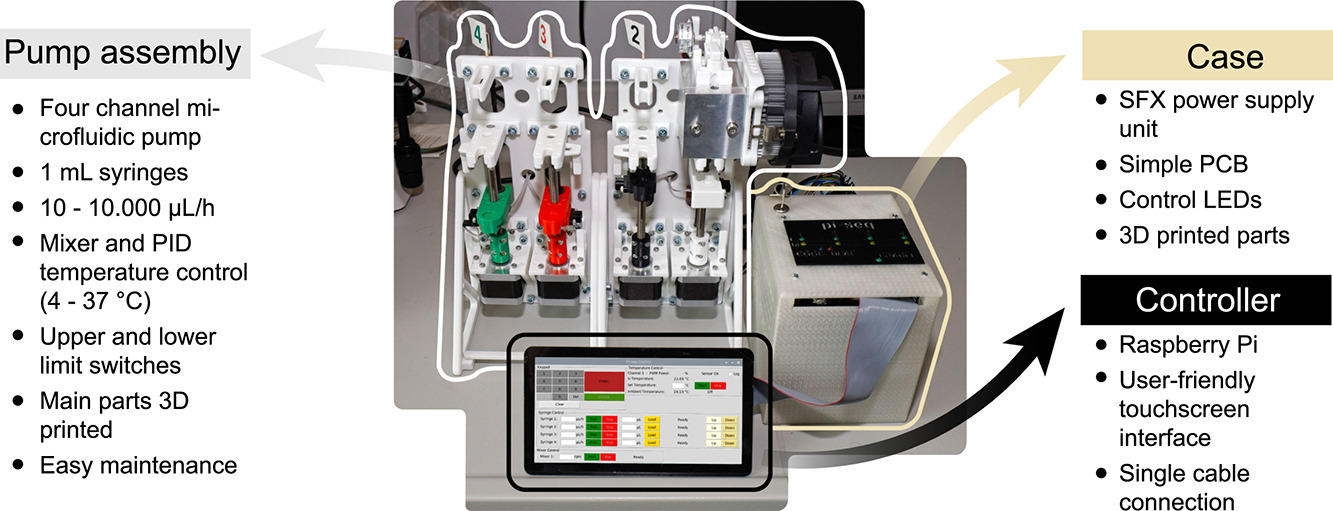In a new milestone for open-source hardware, the Pi-seq is introduced as an affordable, customizable, and modular multi-channel syringe pump for microfluidics. The project, published in HardwareX, is designed to provide an accessible solution for complex biological experiments like single-cell RNA sequencing. Unlike expensive commercial devices, Pi-seq utilizes widely available components, including a Raspberry Pi and 3D-printed parts, making it a cost-effective and highly adaptable platform.
Key Features:
- Modular Design: Allows users to customize the pump channels based on their requirements.
- Affordable: Complete setup costs less than €600.
- Temperature Control: Integrated Peltier-based system for precise temperature regulation.
- Mixing Capability: Equipped with a mixer to prevent sedimentation of cells.
- Open-Source: Licensed under GPL 3.0 (software) and CC-BY-NC (hardware).
- Compatibility: Seamlessly integrates with common microfluidic chips and microscopes.
- User-Friendly Interface: Controlled via a Raspberry Pi touchscreen, eliminating the need for additional boards like Arduino.
The Pi-seq is an open-source innovation that addresses the limitations of existing commercial microfluidics solutions, providing a versatile and reliable tool for a wide range of life science applications.

